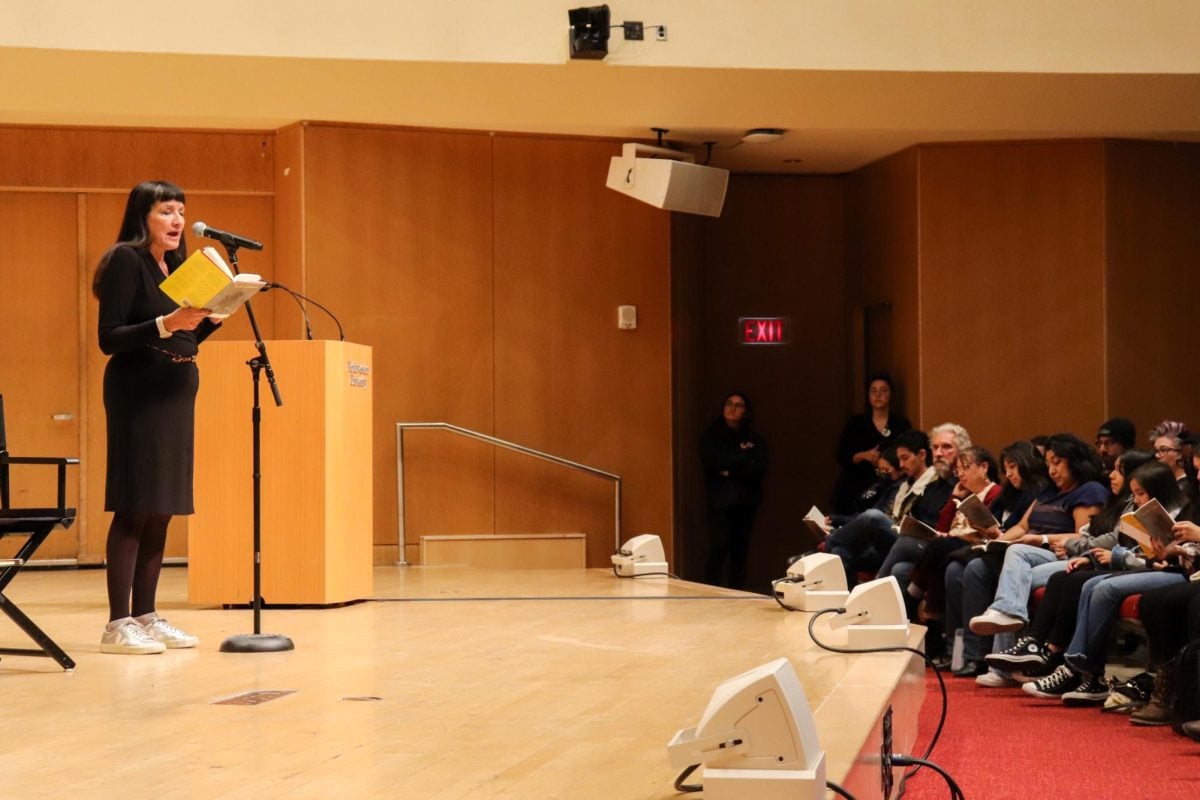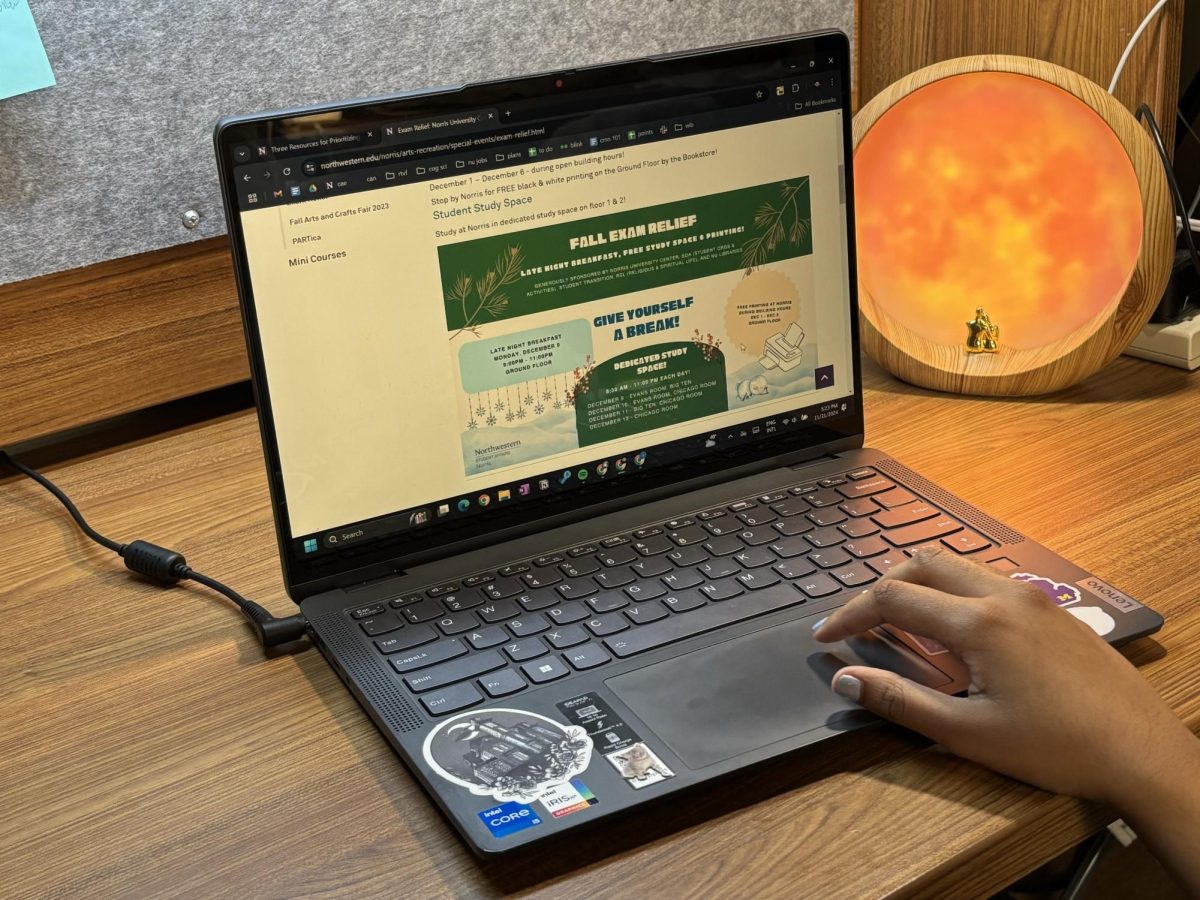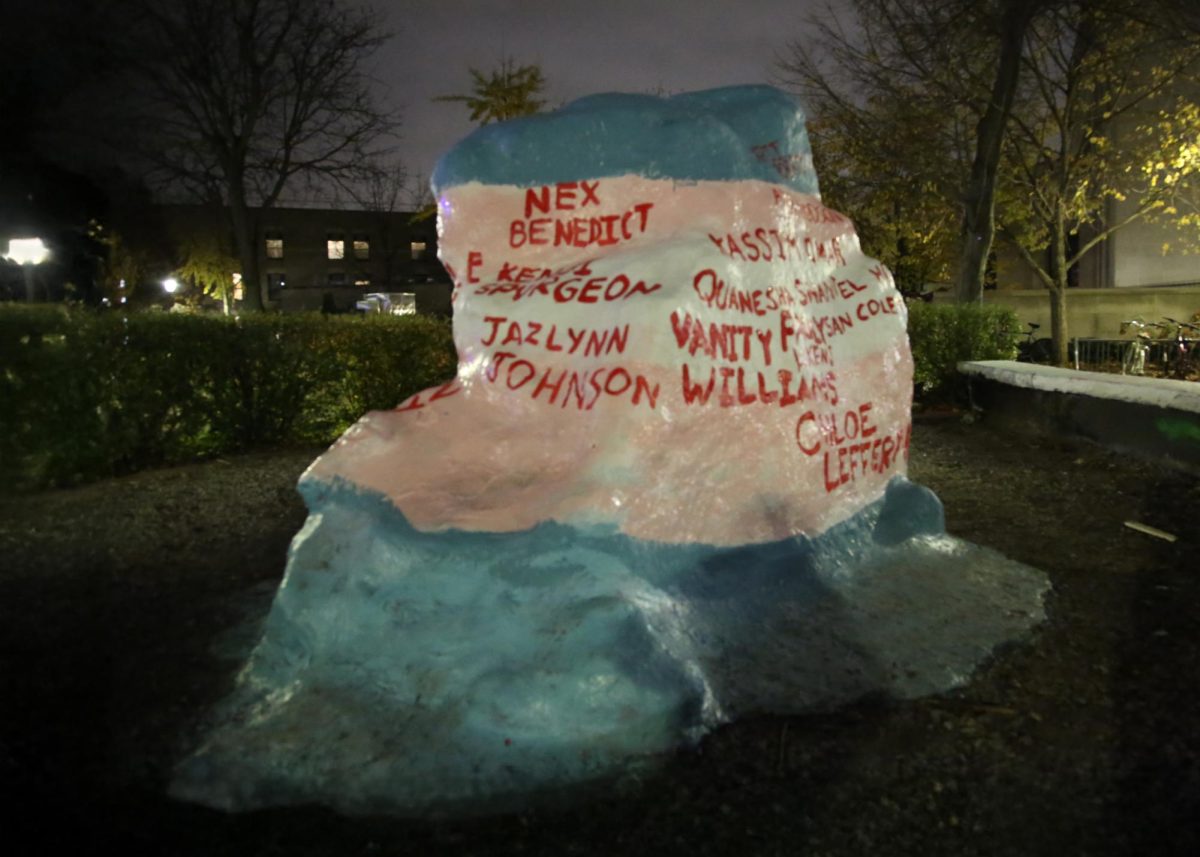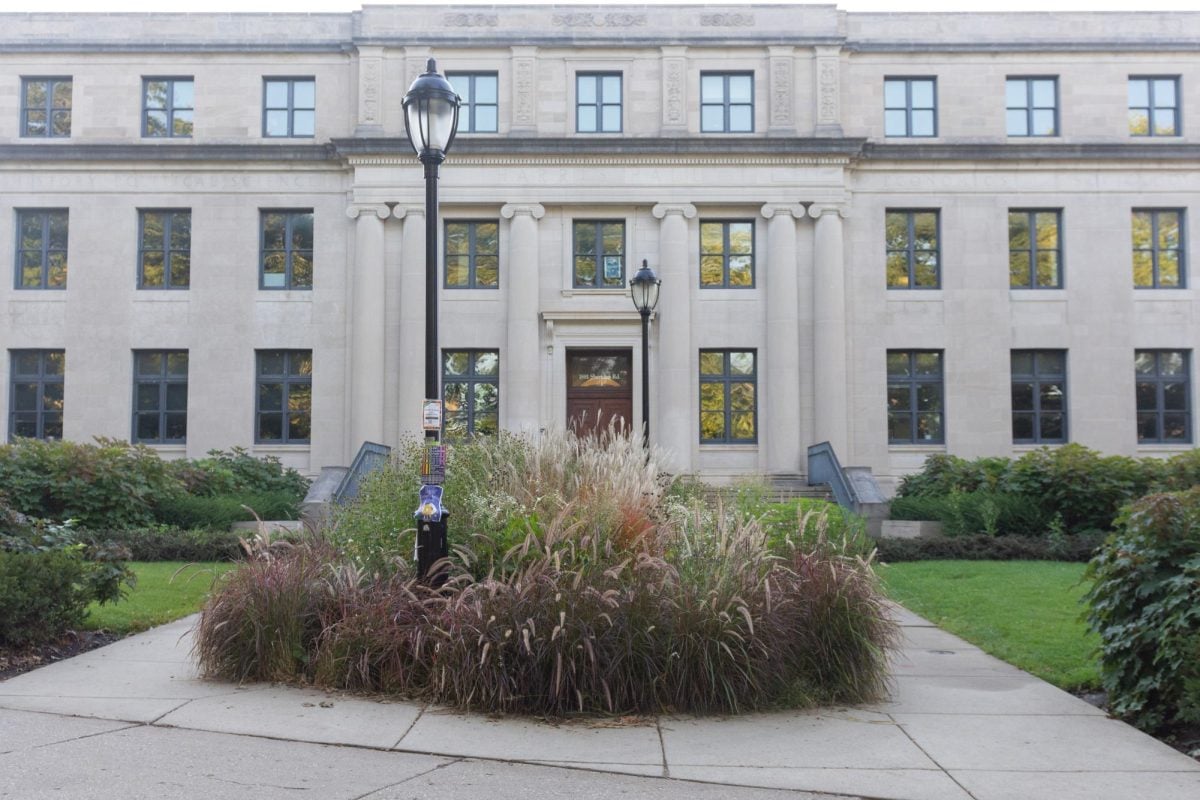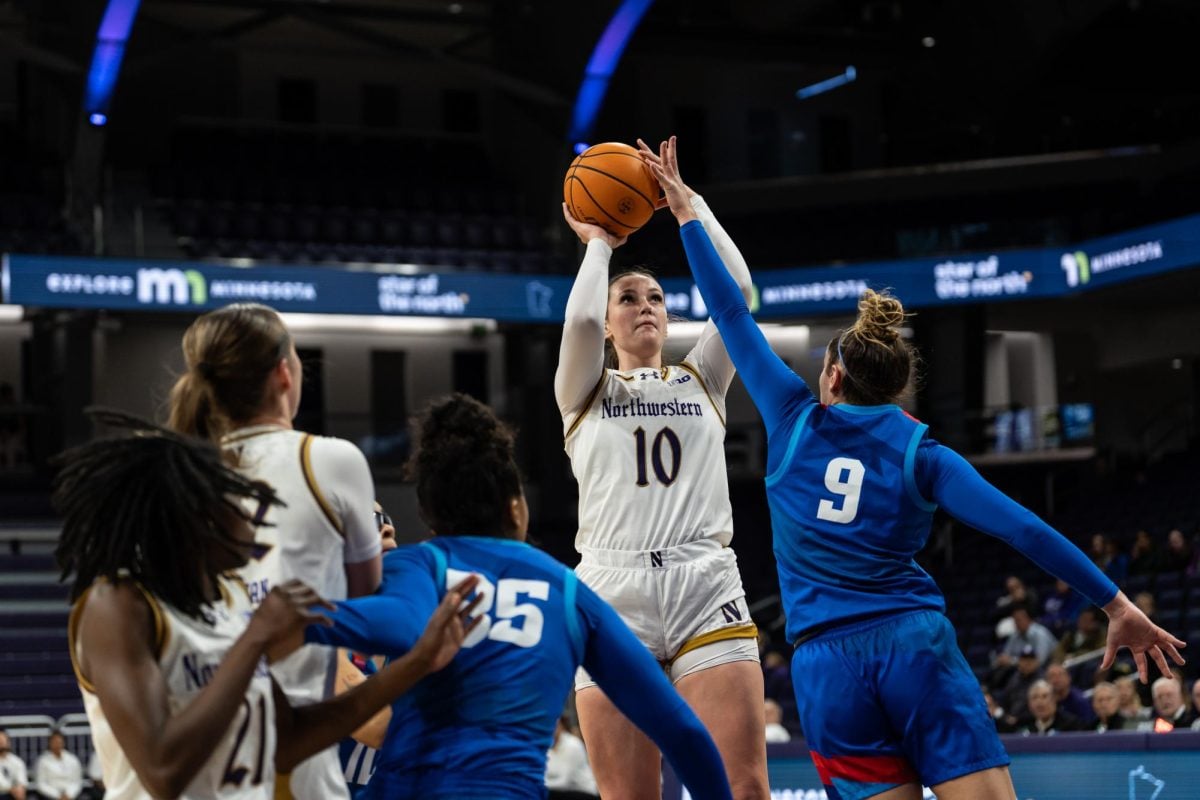Northwestern hosted writer Sandra Cisneros at Pick-Staiger Concert Hall Saturday in partnership with Chicago Humanities to discuss her newest poetry collection, “Woman Without Shame.”
The event — Cisneros’ first time speaking at NU — was one of 13 for the Chicago Humanities Festival’s annual Evanston Day and included a facilitated discussion with English Prof. Daisy Hernández, a Q&A with participants and a poetry reading. Eventgoers also had the opportunity to have Cisneros sign pre-ordered copies of her poetry collection, “Woman Without Shame.”
Cisneros’ decades-long writing career spans award-winning novels, poetry collections and chapbooks incorporating elements of her Mexican-American identity and Chicago upbringing. “Woman Without Shame” is the first poetry collection Cisneros has published in 28 years.
She attributed this extended period to the confessional nature of her poetry and its relationship with shame.
“Everything in my life, all the writing, has started from a place of shame,” Cisneros said. “There’s a lot of shame, and writing has helped me to survive that.”
Cisneros’ event drew an audience of about 300, according to CHF Director of Operations Brittany Pyle.
Some attendees, like Chicago resident Erika Erdely, said they resonated with Cisneros’ message of female empowerment and liberation from shame.
“I’m in that age — I’m 50 now — where I don’t want to be ashamed of who I am, and being a woman and all the stories I have behind me,” said Erdery, a professor of Spanish at Universidad Nacional Autónoma de México Chicago.
Those in attendance also included readers whose first exposure to Latine literature was through Cisneros’ works, which are known for their distinct narration in Spanglish, a mixture of English and Spanish.
Cisneros’ multilingual storytelling has influenced some aspiring writers at NU like Communication freshman Lux Vargas, who has incorporated Spanglish narration into her writing.
“Especially for those of us who are bilingual and English is our second language but grew up speaking English, we lose a lot of our Spanish,” Vargas said. “It becomes really hard to decide what (language) I want to write in, and seeing her read her pieces and using Spanglish is really inspiring to me.”
Cisneros’ impact on the Latine literary canon and her storytelling of the Mexican-American experience in Chicago has stayed with loyal readers long since she published her first novel, “The House on Mango Street,” in 1984.
Fans in the audience, like Chicago resident Argelia Martinez (Medill ’12), described Cisneros’ impact on Latinas of all ages as “timeless.”
“It’s powerful to see a woman that is Latina in her 60s and see the type of influence she has on all ages,” Martinez said.
After performing her latest poems, signing dozens of books and meeting fans at the CHF event, Cisneros advocated for the healing and therapeutic nature of words.
“I feel that everyone went home with something that they could think about, take home to uplift them and help them to feel better, and that makes me so happy because I am a ‘sanadora,’ a healer,” Cisneros told the Daily. “But I don’t do it with medicine. I do it with words.”
Correction: A previous version of this article incorrectly stated that “Woman Without Shame” misstated what works Cicernos has published in the past 28 years. The Daily regrets the error.
Email: [email protected]
Twitter: @Marisa_G_Ech
Related Stories:
— Greg Lukianoff, Yascha Mounk, Rikki Schlott talk free speech at NU
— Bob, Nate, Erin Odenkirk talk new book with Peter Sagal at NU
— Fox News’ Bret Baier discusses new book, current events at NU
